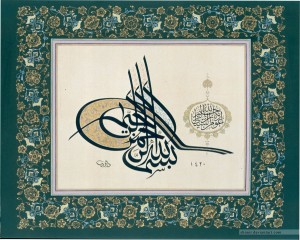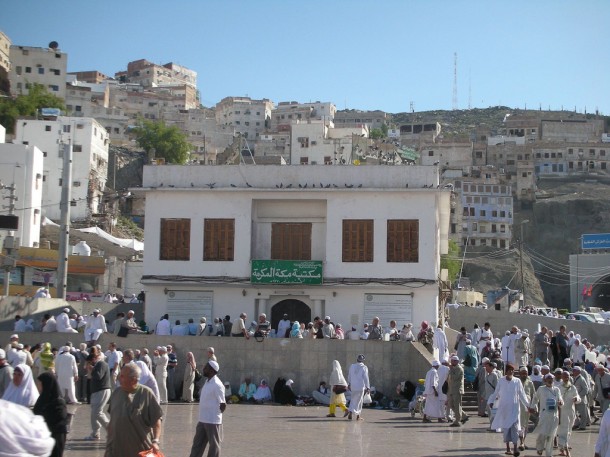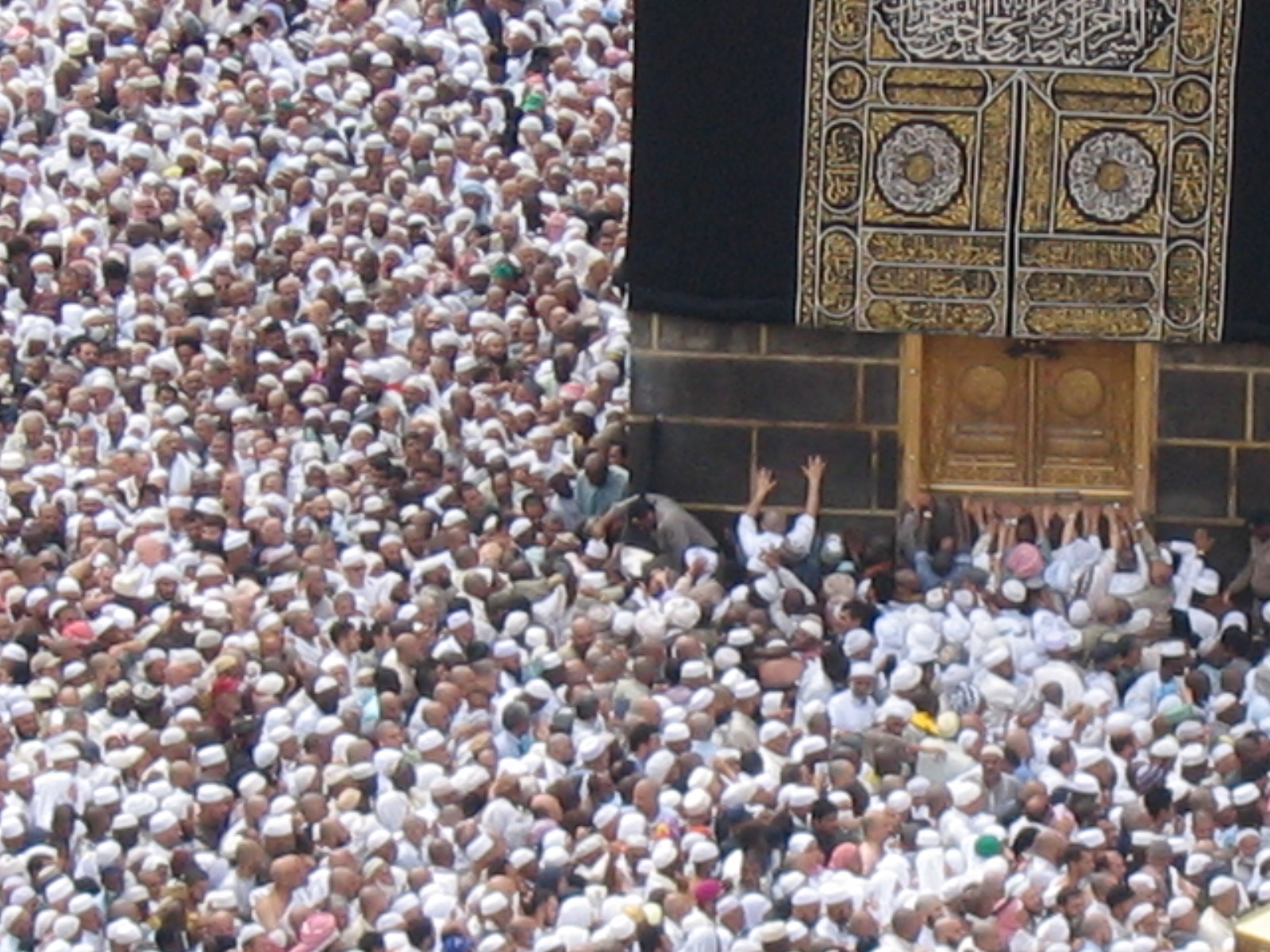Category Archives: Heritage
The Twin Pillars of the Hanafi Madhhab: Qadi Abu Yusuf and Muhammad Shaibani
Qadi Abu Yusuf
 Qadi Abu Yusuf was a descendent of the Ansar and Sahaba Hadrat Sa`d b. Sibat. Born in Kufah in 113 or 117 H and passed away on the 5th of rabi’ al-Awwal 182 H. Muhammad b. al-Hasan al-Shaibani was born in 135 H and passed away in 189 H. He attended for about two yrs the lectures of Imam Abu Hanifah (ra), and upon the latter’s death, he completed his education under Abu Yusuf. He also studied for three yrs the Muwatta of Imam Malik (ra) under the great Imam himself, in Medina.
Qadi Abu Yusuf was a descendent of the Ansar and Sahaba Hadrat Sa`d b. Sibat. Born in Kufah in 113 or 117 H and passed away on the 5th of rabi’ al-Awwal 182 H. Muhammad b. al-Hasan al-Shaibani was born in 135 H and passed away in 189 H. He attended for about two yrs the lectures of Imam Abu Hanifah (ra), and upon the latter’s death, he completed his education under Abu Yusuf. He also studied for three yrs the Muwatta of Imam Malik (ra) under the great Imam himself, in Medina.
Qadi Abu Yusuf As long as Imam Abu Hanifah (ra) lived he regularly attended his court. Imam Abu Hanifah acknowledge his mastery in Fiqh. Returning once from a visit to Abu Yusuf during the latter’s sickness, Abu Hanifah (ra) said to his companions: “If, Allah forbid, this man (Abu Yusuf) dies, the world will lose one of its great scholars.â€
Abu Yusuf attended the lectures of many other doctors. He heard Traditions from A’mash, Hisham b. ‘Urwah, Sulaiman Taimi, Abu Ishaq Shaibani, Yahya b. Sa’id al-Ansari and others, learned maghazi (military history) and siyar (biography) from Muhammad b. Ishaq and knowledge of Fiqh from Muhammad b. Abi Laila. Allah endowed him with so much intelligence and such a good memory that he learned all these disciplines simultaneously! Other Imams in other sciences acknowledged his quick intelligence and penetration.
Although he is known mostly in Fiqh, he was unrivalled in other sciences.The historian Ibn Khallikan quotes Hilal b. Yahya as having said: “Abu Yusuf was a hafiz of tafsir (exegesis), maghazi and ayyam al-`Arab (history of Arabia), Fiqh was one of his minor accomplishments.â€
1. Abu Yusuf was ranked so high in Hadith so as to be counted huffaz in it, the famous and strict muhhadith Dhahabi included an account of Abu Yusuf in his Tadhkirat al-Huffaz.
2. Ahmad Hanbal (ra) said “When I was first attracted to Hadith, I went to Abu Yusuf.â€
3. Muzni, a famous disciple of Shafi`i (ra) used to say: “Abu Yusuf follows more Hadith than anybody else. ‘Abd al-Barr, a well-known Muhaddith, writes that Abu Yusuf used to visit different Muhaddithin and at one sitting learn 50 to 60 Traditions, all of which he would retain in his memory!
4. A`mash the famous muhaddith having consulted Abu Yusuf on a question, said on hearing his reply: “Have you any authority for this?â€. “Yesâ€, replied Abu Yusuf, and he reminded A`mash of a Tradition which the latter had narrated to him on a certain occasion. “Ya`qubâ€, said A`mash, “I first heard this Tradition when your parents had yet not got married, but I have understood its meaning only today†(Ibn Khallikan, Tarikh, note on Abu Yusuf).
Imam Muhammad Shaibani
The great Imam, Imam Shafi`i (ra) said: “Whenever Imam Muhammad expounded a point of law, it seemed as if the revealing Angel had descended upon him.â€
“I acquired from Imam Muhammad a camel-load of learning†Ibn Hajar quotes Imam Shafi`i as having said: “….I used to visit him (Muhammad b. Hasan). I told myself that he was of high rank in Fiqh too.
Therefore, I made it a point to attend upon him, and I used to take down his lectures.â€
[note: In his early days Ibn Taymiyyah denied that Shafi`i was a pupil of Imam Muhammad, but hundreds of historical books and rijal bear witness that Imam Shafi`i associated with Imam Muhammad]
On somebody asking the great Imam, Imam Ahmad Hanbal where he had learnt all the subtle points of law he used to make, he replied, “From the books of Muhammad b. Hasan.†(Tahdhib al- Asma’ wa’l-Lughat byImam Nawawi).
Again, similar to his teachers, most of his fame rests with his work in Fiqh but he had the rank of Mujtahid in exegesis, Tradition and literature also. Imam Shafi`i (ra) is reported to have said: I have not come across a man
more learned in the Quran than Imam Muhammad.†(Al- Jawahir al-Mudiyyah). His complete grasp on literature and Arabic linguistics is seen questions of fiqh based upon grammatical points in his Jami` Kabir. Jami` Kabir is a voluminous work where the dicta of Imam Abu Hanifah (ra), Imam Abu Yusuf and Imam Zufar are quoted with the questions and arguments. Later Hanafi scholars used this book as the basis of the methodological reasoning employed by the Hanafi school.
Shaykh al-Kadi, a latter day scholar said in a talk (Fiqh and Fuqaha) that Fiqh is the fruition of all the other Islamic sciences such as Hadith, Exegesis, Grammer, History and so forth. These two great Imams were recognized Mujtahids in all the sciences making them Mujtahid Mutaqs of the madhhab. The same holds true for the other
madhhabs. Many scholars consider some of Imam Shafi`i students to be Mujtahid Mutlaqs also. The genius of Imam Abu Hanifah (ra) in operationalizing the Quran and Sunnah was nurtured and matured under the genius of his
students.
As time went by, scholars who were masters in the Hanafi madhhab methodology and its basis became the madhhabs custodians, such as Imam Abideen. We lay Muslims are indebted to these great Scholars for allowing creating and maintaining a vehicle for us to traverse and protect us on the “Straight Path†to our Lord and Creator, based on the teachings of Allah’s beloved, our Prophet and leader in this world and the next, Muhammad, Peace and choicest blessings be upon Him and the Ahlul Bait.
This information has been obtained and adapted from the English translation of Sirat-i-Numan by Allamah Shibli Nu’mani translated by M. Hadi Hussain.
© 2012 As-Sunnah Foundation of America
Ongoing Destruction of Prophetic Sites
In an effort to document and publicize the ongoing destruction of the Prophetic heritage, IECRC is creating this page for resources and information. Please publish to your media outlets as well.
Articles:
Videos:
http://www.youtube.com/watch?v=nqFgeYvuyp4&feature=youtu.be
Organization:
http://www.islamic-heritage.org/
Big Nights and Days of Islam: Dhul Hijjah
In the Name of Allah, The Beneficent, The Merciful
Prayers and Peace upon His Noble Messenger
Â
Dhul Hijjah is the 12th and last month of the Islamic lunar calendar. It is one of the four sacred months, the other three being Muharram, Rajab Dhul Qa’dah. Only Rajab is on its own, the other three come together. Dhul Hijjah’s significance is enormous as related in the Holy Quran, and the sayings of the Holy Prophet sal Allahu alayhi wa sallam and His Noble Companions (may Allah be pleased with them all).
Allah, Almighty and Glorious is He, says in the Holy Quran:
“And by oath of ten nights.â€
                                                                                   [Al-Fajr 89:2]
Hazrat Ibn Abbas (may Allah be pleased with him and his father), the great Companion of the Holy Prophet sal Allahu alayhi wa sallam and illustrious exegete of the Holy Quran explained that the expression “and ten nights [wa layaalin ‘ashr]†refers to the ten special nights at the beginning of the month of Dhul Hijjah.
Hazrat Abu Saeed al-Khudri (may Allah be pleased with him), another great Companion of the Holy Prophet sal Allahu alayhi wa sallam reported that the Holy Prophet sal Allahu alayhi wa sallam said:
“The chieftain [sayyid] of the months is the month of Ramadan, and the mightiest of them in sanctity [hurma] is Dhul-Hijjah.â€
According to Hazrat Abu Huraira (may Allah be pleased with him), the Holy Prophet sal Allahu alayhi wa sallam said that:
“Of all the days, there are none in which Allah, Exalted is He, more dearly loves to have worshipful service performed for His sake, other than the Ten Days of Dhul Hijjah. To devote just one of the them to fasting is equivalent to fasting for one whole year, and keeping vigil on one of these nights is like keeping vigil for one whole year.â€
Narrated Hazrat Ibn Abbas radi Allahu anhuma: The Prophet alayhi salatu wa salaam said,
“No good deeds done on other days are superior to those done on these (first ten days of Dhul Hijjah).†Then some Companions radi Allahu anhum of the Prophet alayhi salatu wa salaam said, “Not even Jihad?†He alayhi salatu wa salaam replied, “Not even Jihad, except that of a man who does it by putting himself and his property in danger (for Allah’s sake) and does not return with any of those things.†[Bukhari Shareef, Volume 2, Book 15, Number 86]
Sayyidina Abu Hurairah radi Allahu anhu reported that the Prophet sal Allahu alayhi wa sallam said,
“None of the days are dearer to Allah during which He is worshipped than the ten days of Dhul Hijjah. Fasting on each of these days is like fasting for a year and standing (in worship) on each of its nights is like standing on Laylatul Qadr.†[Jami’ At-Tirmidhi Hadeeth #758, Ibn Majah Hadeeth #1728]
***
Hazrat Ali (may Allah ennoble his face) reported that the Holy Prophet sal Allahu alayhi wa sallam once said:
“When the Ten [Days and Nights] of Dhul-Hijja come around, you must devote yourselves strenuously to worshipful obedience, for they are the days upon which Allah, Exalted is He, has bestowed His special favor, and He has made the sanctity of their nighttime equivalent to the sanctity of their daytime. So if a worshipper prays during any night of the Ten Nights, performing four cycles of ritual prayer [raka’at] in the last third [of the night], and including the following recitations from the Holy Quran in each cycle:
Â
- Surah Al-Fatiha [1:1-7] once
- Surah Al-Falaq [113:1-5] Surah An-Naas[114:1-6] once each
- Surah Al-Ikhlaas [112:1-4] 3 times and
- Ayat Al-Kursi [2:255] 3 times
Â
and if he raises his hands, as soon as he has completed this ritual prayer and says:
Â
Subhaana Dhil-‘Izzati wal-Jabaroot. Subhaana Dhil-Qudrati wal-Malakoot. Subhaanal-Hayyil-ladhee laa yamoot. Laa ilaaha illa Huwa yuhyee wa yumeetu wa Huwa Hayyun laa yamoot. Subhaanal-laahi Rabbil-‘ibaadi wal-bilaad. Al-hamdu lil-laahi katheeran wa tayyiban wa mubaarakan ‘alaa kulli haal. Allahu Akbaru kabeera Rabbanaa jalla Jalaaluhu wa Qudratuhu bi-kulli makaan.
Â
and if he then pleads for whatever he wishes, he will be entitled to the same reward as someone who perform the Pilgrimage to the Sacred House of Allah, visits the tomb of the Prophet y and strives in the cause of Allah. Whatever he asks of Allah, He will surely grant him his request.
Â
If he performs that same ritual prayer during every night of the Ten Nights, Allah, Exalted is He, will grant him lawful access to the Highest Paradise [al-Firdaws al-A’laa] and He will erase every bad deed from his record. ‘Now set about your work from a new beginning,’ he will be told.
Â
If it happens to be the Day of ‘Arafa, and he devotes the daytime thereof to fasting and night thereof to ritual prayer, and he pronounces this invocation and he offers many a humble entreaty in the presence of Allah, Exalted is He, Allah will say: ‘O My angels, bear witness that I have granted him forgiveness, and that I have equated him with the Pilgrim of the House of Allah [al- Haajj ilaa Baitillah].’ The angels will be delighted to learn what Allah, Exalted is He, has bestowed upon that believing servant, as a reward for his ritual prayer and his invocation.â€
***
Hazrat Ibn Abbas (may Allah be pleased with him and his father) said:
We were in the company of Allah’s Messenger sal Allahu alayhi wa sallam, when a group of people arrived from Yemen. They said: “May our mothers and fathers be our ransom! Will you tell us about the special merits of the Pilgrimage [Hajj]?†He sal Allahu alayhi wa sallam said:
“Yes! If any mans sets out from his home, as a Pilgrim or a Visitant, whenever he lifts a foot, or sets a foot down on the ground, sins are scattered from his feet, just as leaves are scattered from the trees. Then, when he reaches the city of Medina, shakes my hand, and salutes me with the greeting of peace [salaam], the angels will likewise salute him with the greeting of peace. Then when he reaches Dhul Haleefa (the miqat or meeting point for Pilgrims approaching Mecca from the direction of Medina), and performs the major ritual ablution, Allah will purify him of his sins. When he puts on two new pieces of clothing, Allah will renew his good deeds for him….†(Please refer to the source text for the entire Hadeeth, which is quite extensive.)
***
Â
Hazrat Ibn Umar (may Allah be pleased with him and his father) said that he heard Allah’s Messenger sal Allahu alayhi wa sallam say:
“Allah, Exalted is He, inspects His servants on the Day of ‘Arafa, and if there is an atom’s weight of faith [imaan] in the heart of any one of them, He grants them forgiveness without fail.â€
Fasting on the 9th of Dhul Hijjah
Hazrat Abu Qatada al-Ansari (Allah be pleased with him) reported that the Messenger of Allah (may blessings and peace be upon him) … was asked about fasting on the day of ‘Arafa (9th of Dhu’I-Hijja), whereupon he said:
“It expiates the sins of the preceding year and the coming year….†[Sahih Muslim, Book 006, Hadeeth #2603][1]
Â
Ritual Prayer to Be Recited on the 9th of Dhul Hijjah
Hazrat Abu Huraira (may Allah be pleased with him) said that the Holy Prophet sal Allahu alayhi wa sallam said:
“If someone performs four voluntary cycles of ritual prayer, on the Day of ‘Arafa, between the Dhuhr and ‘Asr reciting in each cycle Surah Al-Faatiha one time, and Surah Al-Ikhlaas 50 times, one million good deeds will be recorded in his credit column. For every letter in the Quran, he will be promoted by one level in the Garden of Paradise, the distance between each level and the next being a journey of fifty years…†(Please refer to the source text for the remaining benefits of performing this prayer.)
Also, in another traditional report, Hazrat Abdullah ibn Masud (may Allah be pleased with him) said that the Holy Prophet sal Allahu alayhi wa sallam said:
“If someone performs two voluntary cycles of ritual prayer on the Day of ‘Arafa, reciting in each cycle:
Â
- Surah Al-Faatiha 3 times, each beginning with the Basmala (Bismillaahir-rahmaanir-raheem) and ending with Aameen,
- Surah Al-Kaafiroon [109:1-6] 3 times, and
- Surah Al-Ikhlaas once, beginning each time with the Basmala,
Â
Allah (Exalted is He) will surely say [to the angels]: ‘Bear witness that I have granted him forgiveness for his sins.’â€
***
Â
In the ritual prayer of the Night of Sacrifice (i.e. the night preceding the day of Eid), the worshipper must perform two cycles of prayer, reciting in each cycle:
- Surah Al-Faatiha 15 times, and
- Surah Al-Ikhlaas 15 times, and
- Surah Al-Falaq 15 times, and
- Surah An-Naas 15 times
After concluding the prayer he should:
- recite Ayat-ul-Kursi 3 times
- seek forgiveness of Allah 15 times, and then:
- appeal for whatever he wishes from the good of this world and the Hereafter.
Â
When the believer sets out to attend the Festival prayer, following a particular route, he is recommended to return home by a different route. This advice is based on the report of Hazrat Ibn Abbas (may Allah be pleased with him and his father) who said that the Holy Prophet y took one road [to the congregational prayer] on the Day of the Festival, and used a different road on His way back home.
Udhiyya (Qurbani)
Â
The animal sacrifice (udhiyya /qurbani) is a customary practice (Sunnah) in the Hanbali, Maliki, and Shafi madhhabs, the omission of which is not recommended for anyone who is capable of performing it. In the Hanafi it is strictly necessary (wajib) (technically same as Fard in terms of implementation).
***
We pray that Allah, Most Glorified and Exalted is He, by the waseela (connection) of His Beloved Prophet (Prayers and Peace be upon Him) accepts the Hajj of all those who had the good fortune to go this year and may He grant the opportunity to those who desire the journey in future years. May He forgive our faults and accept our worship and make us true servants of His Noble Friends (Awliya Kiram). Aameen.
[1] Part of a larger Hadeeth text
















